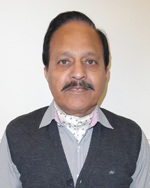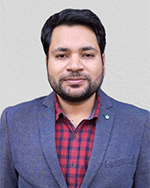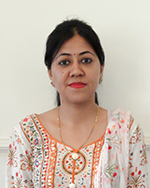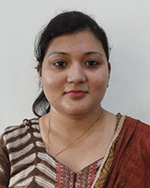The Dept. of Electronics and Communication Engineering at MIET is the first and NBA accredited ECE department in the region, which speaks volumes of the high-quality instruction and training imparted to its students. Manned by highly qualified, committed and dynamic faculty and staff, the department in its short existence has emerged as one of the leading departments in the region in terms of placements, university results, industrial linkages, quality of project work, research and development, extra/co-curricular activities and novel academic initiatives etc.
Vision
To become a world class department of Electronics and Communication with demonstrated excellence in teaching, research and innovation.
Mission
1. To impart high quality instruction in electronics and communication, equipping students with fundamental knowledge and skills to address real world challenges in emerging domains
2. To integrate academics, research, innovation and entrepreneurship to create significant values for all stakeholders.
3. To develop meaningful linkages with world-class organizations to constantly enhance capacity and capability.
Program Educational Objectives (PEOs)
- Successfully apply fundamental domain knowledge in an innovative manner to solve complex problems.
- Build successful careers in diverse domains.
- Demonstrate professional growth and development in their chosen field and/or progress towards an advanced degree.
- Build reputation for excellence, leadership and ethics
Program Outcomes (POs)
1. Engineering Knowledge: Apply the knowledge of mathematics, science, engineering fundamentals, and an engineering specialization to the solution of complex engineering problems.
2. Problem Analysis: Identify, formulate, review research literature, and analyze complex engineering problems reaching substantiated conclusions using first principles of mathematics, natural sciences, and engineering sciences.
3. Design/development of solutions: Design solutions for complex engineering problems and design system components or processes that meet the specified needs with appropriate consideration for the public health and safety, and the cultural, societal, and environmental considerations.
4. Conduct investigations of complex problems: Use research-based knowledge and research methods including design of experiments, analysis and interpretation of data, and synthesis of the information to provide valid conclusions.
5. Modern tool usage: Create, select, and apply appropriate techniques, resources, and modern engineering and IT tools including prediction and modeling to complex engineering activities with an understanding of the limitations.
6. The engineer and society: Apply reasoning informed by the contextual knowledge to assess societal, health, safety, legal and cultural issues and the consequent responsibilities relevant to the professional engineering practice.
7. Environment and sustainability: Understand the impact of the professional engineering solutions in societal and environmental contexts, and demonstrate the knowledge of, and need for sustainable development.
8. Ethics: Apply ethical principles and commit to professional ethics and responsibilities and norms of the engineering practice.
9. Individual and team work: Function effectively as an individual, and as a member or leader in diverse teams, and in multidisciplinary settings.
10. Communication: Communicate effectively on complex engineering activities with the engineering
11. Project management and finance: Demonstrate knowledge and understanding of the engineering and management principles and apply these to one’s own work, as a member and leader in a team, to manage projects and in multidisciplinary environments.
12. Life-long learning: Recognize the need for, and have the preparation and ability to engage in independent and life-long learning in the broadest context of technological change.
Programme Specific Outcomes (PSOs)
Outcomes of the Programmes
- The program will enable graduates to excel in professional career by acquiring essential and comprehensive understanding in relevant areas of Electronics & Communication Engineering.
- The program will enable graduates to conceive and design appropriate systems to provide solutions, to real life problems, that are technically sound, economically viable and socially relevant. It will help them in developing the intuitive mind and hence innovate.
- The program will develop in graduates a spirit to exhibit social, moral and professional ethics, adaptability to current trends and a good team spirit to work productively and incessantly in team environments.
- The program would develop in graduates an in-depth understanding of the fundamentals of science and mathematics and hence connect to advance engineering.
- The program will aim at motivating the graduates to upgrade their skills and pursue higher studies thereby ensuring the spirit of life-long learning to ensure unending contribution to the betterment of the society.
Specializations
MIET offers Electronics and Communication Engineering Hons. / Minor degree with specializations in the following
- AI & Machine Learning
- Internet of Things
- Data Science
- Cloud Computing
- Cyber Security
In association with ![]()
Highlights
- Highly qualified, experienced & dedicated faculty.
- Excellent infrastructure & facilities.
- Visiting faculty from the industry & leading academic institutions.
- Excellent Placements.
- Invited Lecture Series providing the platform for distinguished speakers to interact with students.
- High-quality laboratory facilities with advanced Microwave and VLSI Labs.
- Fully automated library and subscription to quality online/ print journals.
- AICTE sponsored Industry-Institute Partnership Cell(IIPC) and Enterpreneurship Development Cell (EDC) in place.
- Regular Industrial tours & visits.
- Value-Added programmes & personality development programmes on offer.





























